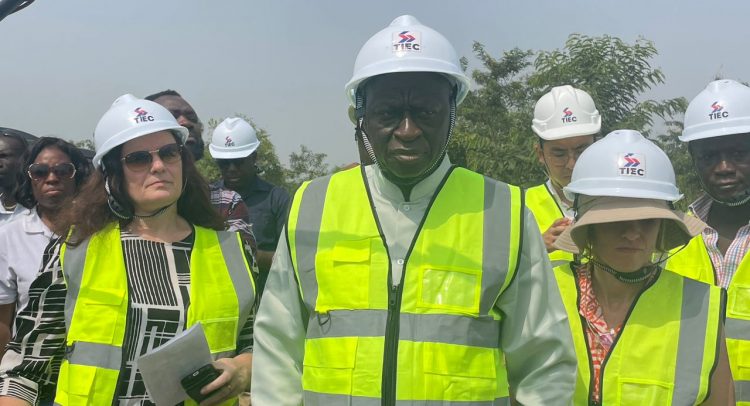Mr. Ousmane Diagana
The West Africa Food System Resilience Programme (FSRP) in Ghana has announced that it requires approximately US$30 million to complete the rehabilitation of inland valleys and irrigation schemes.
The FSRP, a collaborative initiative funded by the government and the World Bank under the auspices of ECOWAS, initially received a funding envelope of US$150 million.
This programme aims to build on the successes achieved under the recently concluded Ghana Commercial Agriculture Project (GCAP) and the West Africa Agricultural Productivity Programme (WAAPP).
The operational Manager of FSRP, Philip Daniel Laryea, stated that following the signing of a US$22.5 million contract for the rehabilitation and modernisation of the Kpone Irrigation Scheme, an additional US$30 million is needed to complete the inland valleys and irrigation projects.
He noted that the FSRP is finalising draft reports for studies related to the rehabilitation of three key dams and irrigation schemes. “Under FSRP, 20 floodplain/inland valley sites totaling 7,000 hectares have been earmarked for development,” he added.
Mr. Laryea emphasised that to ensure sustainable management of public irrigation schemes and developed inland valley sites, the FSRP is supporting the revision of the National Irrigation Policy.
During a recent visit to the Kpong Irrigation Scheme, Ousmane Diagana, World Bank Vice President for Africa West and Central, expressed openness to considering additional financing if necessary.
He reaffirmed the World Bank’s commitment to monitoring project implementation and assessing progress.
After touring key agricultural sites in Ghana, including the Kpong Irrigation Scheme at Asutuare and agribusiness facilities in Akosombo, Mr. Diagana highlighted the World Bank’s dedication to supporting Ghana’s agricultural transformation and fostering economic growth through sustainable farming practices.
He pointed out Ghana’s strategic advantage as a regional hub, presenting opportunities for collaboration with neighboring countries like Sierra Leone to enhance agricultural productivity.
Mr. Diagana stressed the economic benefits of increasing local rice production to reduce dependency on imports, stating, “By prioritizing local production, Ghana could redirect funds to critical sectors such as education and healthcare while creating jobs across the value chain. The World Bank reaffirms its commitment to supporting such initiatives.”
He also called for increased collaboration with the private sector to create an enabling environment for agricultural investments, which would drive job creation and enhance economic resilience.
By Prince Fiifi Yorke


